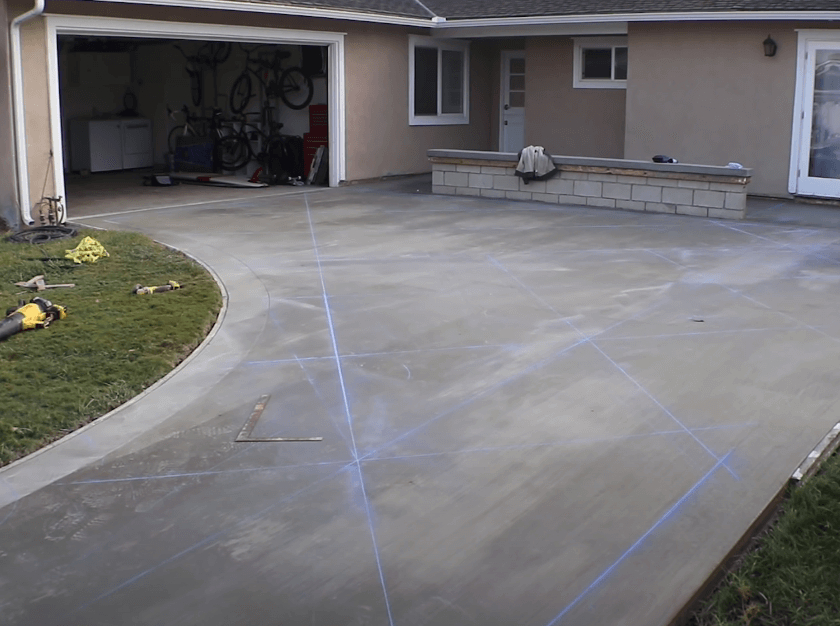Driveways are a property element that is rarely discussed. They do, however, add a lot of value to your curb appeal. One of the first things guests see when they arrive is your driveway. The value of your home may suffer greatly if your cement driveway is broken or unmaintained, that’s why you’ll need residential driveway installation experts to fix the problem.
The majority of property owners utilize their driveways several times each day, especially if they have multiple vehicles. Overuse of your driveway can result in everything from hairline cracks to difficult stains. These fissures may enlarge over time if ignored.
Additionally, driving over cracks and potholes frequently damages your car. Your suspension may deteriorate, your tires may degrade more quickly, and an exhaust pipe puncture is possible.
For this reason, it’s crucial to maintain your driveway. Knowing the typical causes of damage and how to avoid and fix them is one of the best methods to preserve your driveway.
Typical Factors Causing Concrete Driveway Damage
Heavy Loads
Although well-built driveways can support a lot of weight, this does not make them impervious to damage. Deliveries and garbage trucks are two examples of heavy vehicles that put a lot of strain on your driveway. The concrete may be harmed by this. Excessively heavy loads frequently produce cracks, potholes, and breakdowns.
Inquire about the load-bearing capacity of your driveway with your contractor. Depending on the strength of the concrete they utilized, the capacity may vary. Which vehicles can and cannot park in your driveway for extended periods of time will be specified by them. It would be preferable to park any big cars you own on the street or in another parking place.
Weather Conditions
Your driveway is susceptible to a variety of weather situations, including extremely high or low temperatures, an abundance of precipitation, hail, and in some areas of the country, tornadoes.
Puddles can wear away the seal on the driveway’s surface if they remain there for a long time, allowing moisture to seep into the concrete. The layers below may sustain severe damage as a result of this circumstance.
Older driveways can also become damaged by the sun. Its damaging UV rays can damage concrete’s constituents and cause hairline fractures and small cracks.
By routinely reapplying a high-quality sealant to your driveway, you may reduce the damage brought on by weather conditions. Its structural integrity is maintained by this additional layer of defense, which serves as a barrier from the elements. You should typically reseal your driveway every two years.
Poor Installation
Inadequately built concrete driveways are prone to cracking. The installation procedure may be impacted by a variety of things. It’s possible that the foundation wasn’t filled properly or that the materials were of low quality. Both of these factors lead to weaker concrete, which makes the driveway prone to cracking.
It’s also possible that the contractor overwatered the cement. When water is added to concrete, installation is made simpler, but if you add more water than is required, the concrete may shrink.
Studded Tires
To drive safely on icy streets, snow tires are useful since they have spikes or tracks. The concrete in your driveway, though, can also be harmed by studded tires. Small bits of the pavement surface are knocked loose by the studs or spikes’ repeated punches into the concrete. This eventually causes pavement to rut.
However, even concrete roads can be holed by snow tires, especially if they weren’t in the best shape to begin with. Asphalt driveways are more susceptible to damage from studded tires.
Soil Movement
The world is always moving. You won’t be able to see any changes because soil creep is a sluggish, long-term movement. However, the slow movements may have an impact on how the concrete is poured over the ground. As a result, the driveway becomes uneven and is more prone to cracking.
Driveways with a small inclination are more susceptible to erosion damage because the slope amplifies the impacts of gravity.
Tree Root Growth
For privacy, a lot of homeowners choose to plant tall trees in their front yards, but you need to be aware that where those trees are placed can have an impact on your driveway. Huge tree roots might extend from your front lawn to your driveway thanks to their size.
The foundation will be pushed upward as the roots continue to grow as they spread out beneath the ground. The concrete will eventually fracture.
Water
Finally, one of the biggest threats to concrete driveways is water. You are well aware that standing water can cause the pavement to deteriorate, but you also need to be concerned about the groundwater that runs underneath your driveway.
If groundwater collects beneath your driveway, it may soak through and damage the bedrock that supports it. Due to the tension brought on by the soil shifting, your driveway may sink, slope, or break.
